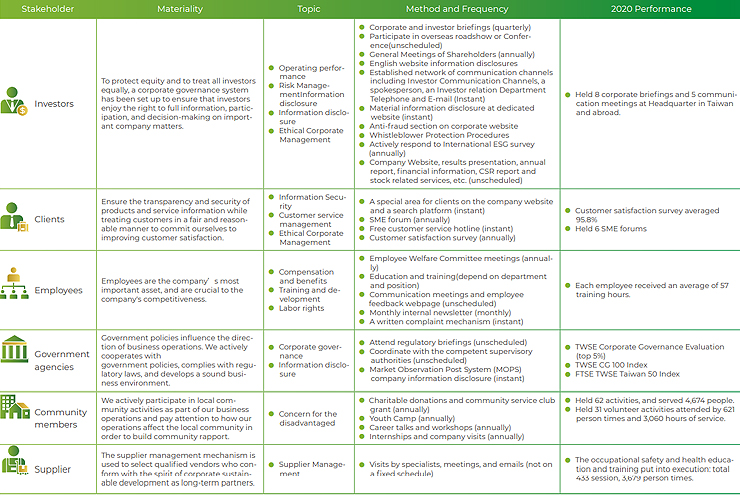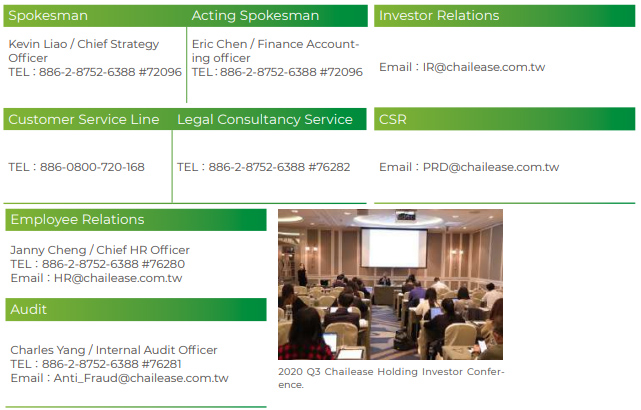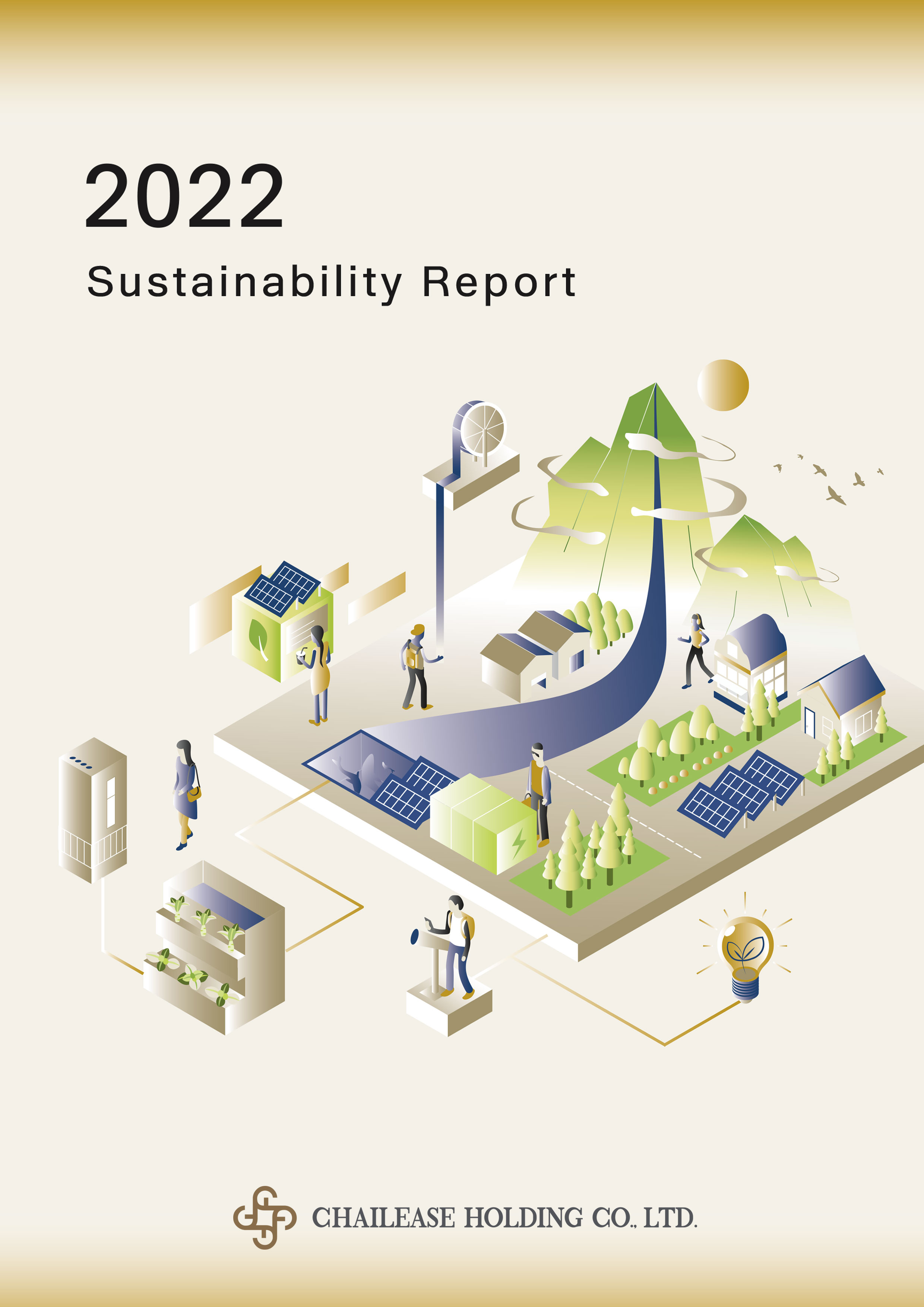The company maintains a strong relationship with interested parties by engaging them through various channels of communications. This not only contributes to overcoming corporate issues but also brings the company closer to achieving its goals. Such engagement can also serve as the foundation for developing an approach to corporate social responsibility and improving company performance across a range of areas.
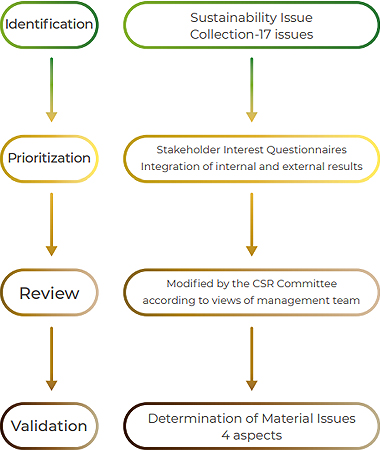
A. Benchmarking:
The company also organized forums to which it invited specialists from industry, the government, and academia to speak on a wide variety of topics to facilitate us in the collection of information on corporate social responsibility, primarily on topics stressing environmental protection issues, specifically the development of green products and services, and held Chailease SME Energy-saving Forums.
B. Surveys:
Information on issues that stakeholders were concerned about and the degree to which they were concerned were gathered using questionnaires in the form of hardcopies, emails, and on the company’s official website. Questionnaires were sent out with investor briefings and year-end customer satisfaction survey information. Offices within the company sent out questionnaires to stakeholders as well as to employees. A total of 718 questionnaires were filled out and returned.
C. Report analysis:
The company analyzed media reports about issues related to Chailease Holding over the course of the entire year to stay abreast of information related to these issues and to determine how the public felt about the issues to facilitate comprehensive collection of the direction of key issues. Reports tended to focus on the company’s outlook and layout.
D. Team suggestions:
In addition to leveraging the channels mentioned above, the committee teams gave back to society and carried out exchanges on issues that key stakeholders found important to obtaining consensus. They went through relevant information and issues and took into consideration the company’s development strategies and key directions.
E. Materiality Issues:
According to the questionnaires distributed to the 6 groups of stakeholders, internal and external results are summarized in a materiality matrix. The Level of impact: Primary/High/Medium Level. Primary level: Ethical Corporate Management, Risk Management, Operating Performance, Corporate Governance. These issues are also key area of disclosure herein and formulation of short/mid/long-term goals.
At the same time, in accordance with internal plans and in response to the opinions of the external governance association, the issue “Remuneration and Benefits of Directors and Managers” will be added to the questionnaire of external stakeholders from 2021. In addition, in order to increase the importance of micro and small enterprises and financially disadvantaged groups, the topic of “Inclusive Finance” was added this year. Also, this year, the issue “Green Products” was renamed “Sustainable Finance”, and “Personal Information Protection” was renamed “Information Security” to make the topic coverage more appropriate and comprehensive.

Chailease Materiality Matrix
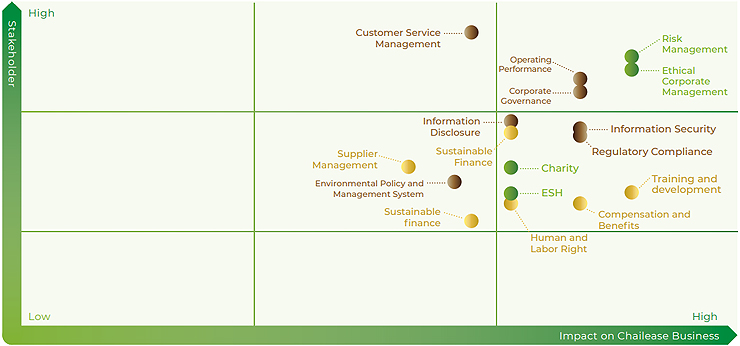
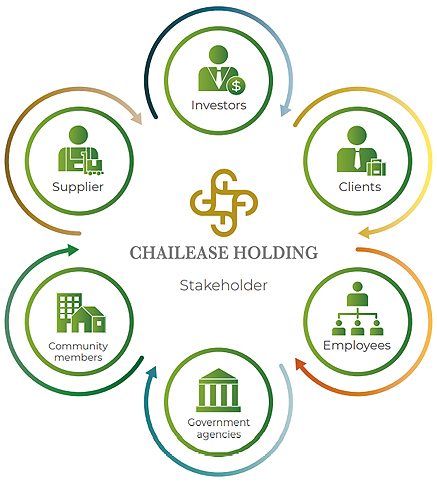 The opinions of stakeholders have served as the guiding principle for the development of the Chailease sustainable development strategy since the first CSR Report was published in 2013. The process of compiling the Environmental (E), Social (S) and Governance (G) issues of concern to stakeholders is used to internalize the issues as the corporate sustainability targets. Chailease also refers to international sustainability standards and regulations such as the GRI Standards, and SDGs Sustainability evaluations such as the DJSI, MSCI ESG Ratings, and the Chailease Holding's sustainable development strategy are adopted as the basis for materiality analysis for the identification of 17 material issues in four major dimensions including accountable governance, environmental management, social harmony, and happy workplace. The issues are internalized as the company's targets for sustainable development and organized as the basis for drafting reports.
The opinions of stakeholders have served as the guiding principle for the development of the Chailease sustainable development strategy since the first CSR Report was published in 2013. The process of compiling the Environmental (E), Social (S) and Governance (G) issues of concern to stakeholders is used to internalize the issues as the corporate sustainability targets. Chailease also refers to international sustainability standards and regulations such as the GRI Standards, and SDGs Sustainability evaluations such as the DJSI, MSCI ESG Ratings, and the Chailease Holding's sustainable development strategy are adopted as the basis for materiality analysis for the identification of 17 material issues in four major dimensions including accountable governance, environmental management, social harmony, and happy workplace. The issues are internalized as the company's targets for sustainable development and organized as the basis for drafting reports.
